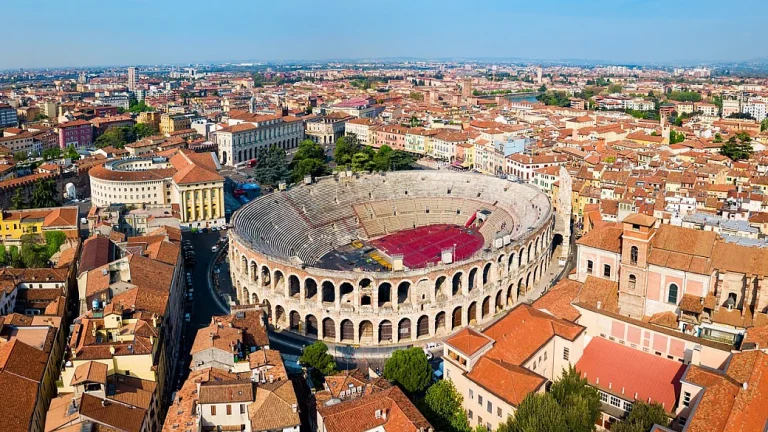The Science of Friction: What Elijah McCoy Teaches Us About Scaling Genius and Protecting Legacy

In the lexicon of American English, few phrases denote authenticity quite like “The Real McCoy.” It is the ultimate seal of approval, distinguishing the genuine article from the cheap imitation. But for the Established Diaspora Leader and the Multi-Generational Family Business, Elijah McCoy is not just a figure of speech. He is a profound case study in intellectual property, operational efficiency, and the tragic fragility of undocumented wealth.
Learn How to Leverage Your Story through our Story To Asset Framework.
McCoy was a master of “Tribology”, the science of friction, wear, and lubrication. He solved the problem of friction for the Industrial Revolution.
Yet, as we analyze his life, we uncover a critical question for every modern founder: You have mastered friction in your business, but have you solved the friction in your legacy?
The Origin Story: Excellence Against the Odds
To understand the weight of McCoy’s achievements, we must contextualize the era. Born in 1843 in Colchester, Ontario, Elijah was the son of George and Mildred McCoy, fugitive slaves who had utilized the Underground Railroad to escape Kentucky.
At a time when the United States was engulfed in the Civil War and the literacy rate for Black Americans was purposefully suppressed, the McCoy family made a radical investment.
They saved their meager earnings to send 15-year-old Elijah across the Atlantic to Edinburgh, Scotland. There, in the heart of European industrialization, he apprenticed as a mechanical engineer.
See also The Legacy of NC Mutual: Why Your Story is an Asset That Can’t Be Liquidated
He returned to Michigan after the Civil War, a certified master of mechanics. However, the American job market of the late 19th century was not a meritocracy; it was a caste system. Despite his credentials, the Michigan Central Railroad would only hire him as a “fireman and oiler”, a manual laborer responsible for shoveling coal and greasing axles.
The Leader’s Insight: Many Diaspora founders resonate with this. It is the experience of being overqualified yet undervalued, forced to work twice as hard to get half as far. But McCoy did not let his title limit his output. He used his proximity to the engines to identify a billion-dollar inefficiency.
The Problem: The High Cost of “Stop and Start”
In the 1860s, locomotives were powerful but inefficient. The massive friction generated by steel axles grinding against bearings created immense heat. If the oil dried up, the engine would warp or explode. The solution at the time was crude: The train had to stop.
Every few miles, the entire operation would grind to a halt. A man would walk around with an oil can, manually lubricating the parts.
- The Cost: Lost time, lost cargo velocity, and increased labor.
- The Business Parallell: This is “Founder Dependency.” If your business requires you to manually touch every client, sign off on every decision, or “oil” every squeaky wheel, you are running a pre-1872 steam engine. You are operating with “Stop and Start” inefficiency.
The Invention: The Hydrostatic Lubricator
McCoy asked a question that defines all great innovation: How can we lubricate the machine while it is still moving? In 1872, he patented the “Improvement in Lubricators for Steam-Engines” (U.S. Patent 129,843).
His device was a masterpiece of fluid dynamics. It used a steam pipe to pressurize a cup of oil. As the engine ran, the steam pressure would push the oil through a valve, dripping it continuously onto the moving parts.
The genius was in the regulation: when the engine stopped, the oil stopped. When the engine sped up, the lubrication increased.
This invention didn’t just save time; it revolutionized transport. It allowed for the emergence of “Super Trains,” the transcontinental railroad expansion, and was later adapted for naval vessels and transatlantic liners.
See also The Legacy of NC Mutual: Why Your Story is an Asset That Can’t Be Liquidated
Cheap knock-offs flooded the market, but they lacked McCoy’s precision. They would clog or flood the engine. Engineers, knowing their lives depended on that valve, began refusing the substitutes. They demanded “The Real McCoy.”
The Tribology of Legacy: Are You Protecting Your Surface?
McCoy’s engineering principles offer a startlingly accurate metaphor for business longevity. In engineering, there are three types of lubrication. Let’s apply them to your legacy strategy.
1. Boundary Lubrication (The Startup Phase)
In mechanics, this happens during starting and stopping. The oil film is too thin to separate the surfaces completely, leading to high friction and wear.
Your Business: This is the “hustle” phase. You are grinding. It is high-friction and high-stress. You cannot stay here forever, or you will burn out.
2. Fluid-Film Lubrication (The “McCoy” Standard)
This is the gold standard. A thick film of fluid completely separates the moving parts. The metal never touches the metal. The load is carried entirely by the pressure of the fluid.
Your Business: This is where you need to be. This is The Legacy Signature Program. It is a proprietary methodology that allows your business to deliver results (carry the load) without you physically doing the heavy lifting. It reduces the friction of delivery by 200%.
3. Solid Lubrication (The Heritage)
When temperatures get too high for liquid oil, engineers use solids like graphite. It stays put under extreme pressure.
Your Business: This is your Brand Narrative. When the market crashes or trends change (extreme heat), what remains? Your reputation, your history, and your values. This is what we capture in The Legacy Book and The Legacy Film.
The Cautionary Tale: The Tragedy of the Unprotected Asset
Elijah McCoy held 57 patents. He founded the Elijah McCoy Manufacturing Company in Detroit in 1920. He was a genius.
But genius does not guarantee generational wealth.
In 1922, McCoy and his wife Mary were involved in a car accident. Mary succumbed to her injuries. McCoy, dealing with the trauma, developed dementia and hypertension. As his health declined, his assets dwindled. He had the inventions, but he lacked the infrastructure to protect his estate against the systemic exploitation and healthcare costs of his time.
Elijah McCoy, the man whose invention saved the global economy millions of dollars, died in 1929 at the Eloise Infirmary, a state-run poorhouse. He was alone and penniless.
See also How To Tell Your Personal Story: The Essential Guide To Memorable Storytelling
This is the “McCoy Paradox”: Undeniable excellence, yet a legacy that benefited the world more than it benefited his own descendants.
How to Immortalize the “Real You”
For the Established Leader and Family Business, McCoy’s life is a call to action. You have already done the hard work. You have built the engine. You have generated the friction-reducing solutions for your industry.
But do you have the assets in place to ensure your story and your methodology survive you?
At AClasses Academy, we specialize in turning “Experts” into “Institutions.” We prevent the McCoy Paradox through three specific assets:
- The Legacy Signature Program: We take the knowledge inside your head—your unique “lubrication formula”—and package it into a licensable, scalable curriculum. This moves you from “Boundary Lubrication” (manual labor) to “Fluid-Film Lubrication” (automated excellence).
- The Legacy Book: Your 50+ year history is not just nostalgia; it is a blueprint. We ghostwrite and publish the definitive account of your journey, ensuring your wisdom is readable for the next five generations.
- The Legacy Film: A picture is worth a thousand words, but a film is worth a thousand years of memory. We produce cinematic documentaries that capture your voice, your spirit, and your “why,” so your great-grandchildren can meet the real you.
The Final Call
Elijah McCoy proved that excellence is the best defense against discrimination. He forced the world to acknowledge his genius.
Now, it is your turn. You have built the business. Do not let the narrative fade. Do not let the asset dissolve. Ensure that 50 years from now, when people speak of excellence in your industry, they know exactly who the “Real McCoy” was.
Your legacy is your most valuable asset. Before you print another brochure or launch another product, let’s talk about how to immortalize what you have already built.
Book your free 15-minute Legacy Strategy Call today. Let’s design the asset that ensures your story outlives you. Book Your Free 15-Min Legacy Call Now.





